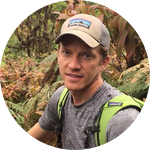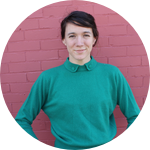About This Project
Over 80% of adults in the US drink coffee, and it also plays a key role in the livelihoods of farmers all over the world. Unfortunately, it's predicted that climate change could devastate the coffee industry through changes in rainfall and temperature. One of the main issues will be drought, so we need to know which coffee varietals will respond best in the field. Such information will inform climate-smart planting decisions for vulnerable producers under new growing conditions.
Ask the Scientists
Join The DiscussionWhat is the context of this research?
Under climate change, changes in rainfall and higher temperatures are expected to impact coffee lands disproportionally hard. Without adequate response to the threat of climate change, we could lose up to half the land suitable for growing coffee! One possible solution is to move coffee production to higher elevations, but suitable high elevation land is limited and often contains threatened forest ecosystems with important biodiversity. My research seeks to identify a solution that allows producers to continue growing high quality coffee on their current land.
My drive to work on this issue comes from almost a decade of experience in the coffee industry. Witnessing the good that coffee can do, I am committed to defend coffee for future generations!
What is the significance of this project?
One limitation of predicting coffee production under climate change is that Arabica coffee has many significantly different varietals. Each varietal likely has a different response to drought, and those that respond better to drier conditions in the field would be less risky for farmers to plant in regions where increased drought is predicted. My research will identify drought tolerant Arabica varietals.
With more resilient farms, there will be less pressure to move coffee production to higher elevations, thereby protecting biodiverse forests and offering a low-cost solution to protect the livelihoods of coffee producers. My research also will inform further research on development of new coffee cultivars that can better withstand extreme climate conditions.
What are the goals of the project?
My biggest goal in this project, and in my career, is to protect coffee production from the impacts of climate change. In my research, I hope to achieve that goal by answering a key question: which coffee varietals will best withstand drought?
To answer that question, I will plant experimental plots of four coffee varietals high in the mountains of Costa Rica. Half of these plots will be covered by "rain-out" shelters to impose drought. Over time I will collect and analyze data on plant growth and resilience of the different varietals under these stressed conditions.
An equally important goal for my project is to engage the coffee community, both locally and globally, in tackling the issue of climate change. We can only do it together.
Budget
Coffee is a finicky plant! The seedlings need to be planted during the rainy season in Costa Rica to ensure that the transplants survive. Your support will go, first, towards the purchasing of the materials necessary to establish research plots this summer. The experimental structures consist of eight rain-out shelters that will impose simulated drought conditions on the different varietals and eight control shelters.
The coffee seedlings are of four varietals that are commonly planted in the Tarrazú region. Any funding above the budget goal will be used to help pay the laborers from the community who will be constructing the shelters and planting seedlings.
Every little bit helps, and together we can ensure a thriving, resilient coffee industry. Thank you!
Endorsed by
 Project Timeline
Project Timeline
July 2017-Set up the research plot! I will plant the coffee seedlings and construct the rain-out and control structures. This will be hard work and will lay the foundations for the whole project!
January 2018-Return to the farm for my first data collection trip.
July 2018-I get to go back again! More data collection.
January 2019-This will be my last data collection trip for this project, however, I hope to continue the work long-term, depending on funding.
July 2019-Publish my work!
Jun 07, 2017
Project Launched
Jun 12, 2017
Trip 1: Prepare the plots for planting on Finca Vino Tinto in Santa María de Dota. I will be there when this campaign launches!
Jul 31, 2017
Trip 2: Plant the seedlings and construct the rain-out shelters. It begins!
Jan 31, 2018
Trip 3: Travel to Finca Vino Tinto to collect data.
Jul 31, 2018
Trip 4: Travel to Finca Vino Tinto to collect more data!
Meet the Team
Emily Pappo
My world is coffee! I am a masters student of Agronomy studying coffee agroecology and I also work as a professional coffee roaster. I have one foot in academia and one in the incredible coffee industry, and the work I do in one without a doubt informs the other. My goal is to support the foundation of a sustainable and equitable global coffee industry, which means keeping it around for the next generation!
Additional Information
First off, I want to send out a HUGE thank you to Kent Runnells for generously hosting this research project on his insanely beautiful coffee farm, Finca Vino Tinto. Kent also roasts his own coffee for his cafe in Safety Harbor, Florida, so be sure to check it out if you're in the area!
INCENTIVES
I truly can't thank you enough for taking the time to donate to this project. However, I can try! If helping to ensure that future generations can grow (and drink!) coffee isn't quite enough, here are some ways I hope to entice you:
All donors: I will send to you a hand-printed thank you card by local Maine artist, Garry Dodds, who has kindly agreed to donate his incredible wood cut prints to this cause. Garry studied art at the University of North Florida and his work has hung in galleries in Florida and beyond.
$30 donors: You know, just $30 buys all the coffee seedlings needed to plant each of my 16 plots! Each person to donate $30 will get a coffee-themed pin.
$75 donors: You will receive a set of 10 hand-printed coffee themed greeting cards.
$100 donors: You will receive a wood cut print of the coffee plant.
$160 donors: This is a truly special one. Each of my 16 structures cost $160 to construct, so the first 16 donors will get to "adopt-a-plot!" You get to choose the name for the plot, and I will send you a photo and updates during the project on how your seedlings are faring.
$500 donors: You guys!! To show my gratitude I will host a private coffee tasting for you and your group or organization. I will introduce you to the process of "cupping" coffees and talk about coffee's journey from seed to cup. Unfortunately, this incentive is limited to the New England area, as I am currently based out of Maine. If you have any questions about availability for your location please feel free to contact me! I want to make it work.
And again, any funding I receive after I've reached my goals will be used directly for my research! Excess funding will go towards my travel to Costa Rica to collect measurements over the course of the project, paying fair wages to the farmers and laborers who help me make the project a reality, and, if possible, expanding the project's scope. The more we know the better!
Project Backers
- 44Backers
- 110%Funded
- $3,319Total Donations
- $75.43Average Donation

